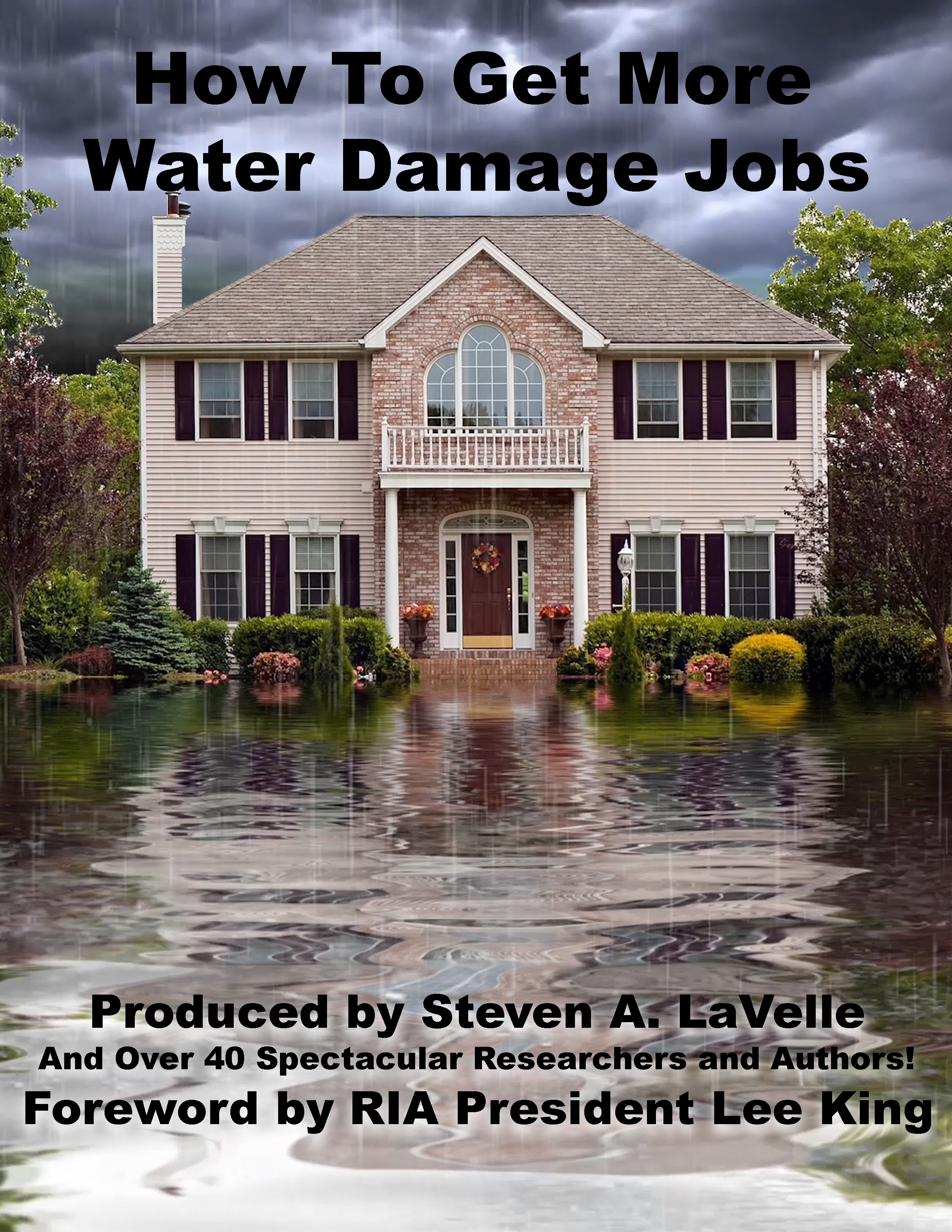Building Leaders: Expert Insights on Developing the Next Generation of Leadership Talent
Steve Glozik’s Relentless Pursuit of Excellence at FP Property Restoration
From Grit to Greatness: How Steve Glozik's Vision Transformed FP Property Restoration

Image provided by KnowHow.
Welcome back to “Building Leaders,” a brand new series from KnowHow that explores how today’s restoration leaders are setting up their teams for success in the future. Inspired by our latest book, Building Leaders, each interview features in-depth conversations—in text and audio—with industry leaders actively preparing their teams to tackle the leadership challenges of tomorrow.
If you want to stay ahead and ensure your team is ready for tomorrow’s challenges, you’re in the right place. Expect real advice, actionable insights, and plenty of takeaways to help you build a team ready for whatever comes next.
Ready to build the leaders of tomorrow?
Hurricane Ian was coming.
Phones rang off the hook. Crews scrambled around. The wind howled outside as Hurricane Ian carved a path of destruction across Florida. Inside FP Property Restoration, the team braced for impact—not just against the storm, but against the chaos that could unravel any company unprepared for a disaster of this magnitude. Two years prior, survival in a crisis like this would have been impossible for the FP crew. But this time? They were ready.
“The systems and processes that we had—I don’t think we would have survived as an organization if we didn't have them,” Steve Glozik, President of FP Property Restoration, reflects. The storm was the ultimate stress test of everything they had built. “We did fantastic during the storm. We held together. We learned from it. We went back to the drawing table.”
The Early Days: A Relentless Grind
Fourteen years ago, FP Property Restoration wasn’t the well-oiled machine it is today. Back then, it was an idea powered by grit, fast-paced growth, and a belief that Florida’s restoration industry could be better.
“I would hate to say we winged it, but, you know, it was like: make a mistake, learn. Don’t do it again, make a mistake,” Steve admits. It was swim or sink. The company grew, but at a huge cost—long hours, relentless pressure, and the constant feeling of playing catch-up.
By year ten, they had hit a wall. “We started looking at things, saying, ‘Okay, are we going to be able to continue growing if we don’t implement strategies, systems, processes?’”
The answer was obvious: they had to evolve.
Building a Scalable Foundation
The shift started with small things: morning meetings, structured workflows, and defined job roles. Then it expanded to bigger things.
“If everyone can come in and understand what we’re supposed to do, and we’re all doing it the same way, it’s not going to prevent issues, but it’s going to promote efficiency,” Steve explains.
Later, clarity became a non-negotiable. A decade of growth had proven that brute force wasn’t sustainable. The company needed a system where everyone rowed in the same direction, at the same time, with the same focus. When issues arose, they could pinpoint bottlenecks, fix them, and move forward.
By the time Hurricane Ian hit, FP Property Restoration not only endured the storm but emerged stronger than ever.
Curious to hear more from Steve? Click on the video below to catch the full discussion!
Creating A Culture of Learning and Accountability
A company can’t grow unless its employees grow. That’s a non-negotiable trait at FP Property Restoration. But early on, learning wasn’t top of mind—it was all about working hard, pushing long hours, and getting the job done. Then reality hit. “That [attitude is] great, until you burn people out, including myself," Steve shares.
The shift came through intentional conversations. “We started having these conversations with people who had been here for a couple of years—maybe a technician who takes down walls. ‘What do you think? You’re gonna take down drywall faster? You’re gonna take up carpet faster?’ There’s got to be a next step.”
To get to their desired point, employees needed training. But training required accountability. And accountability scared people. “What was happening was people were connecting learning with accountability, but they weren’t connecting accountability with success and their goals," Steve recalls.
The breakthrough came when FP flipped the narrative by reframing accountability as a tool for personal and financial growth. “If you want to get to this level of income, we’re going to have to increase accountability. But don’t worry—we’re going to train you how to do it and it’s going to become second nature.”
Breaking Industry Norms: The Unexpected Technician Evolution
Another cultural shift at FP Restoration was pushing beyond conventional boundaries. For example, the restoration industry often puts people in rigid, strictly defined job roles. Steve and his team at FP Restoration challenged that assumption.
“I can have a technician, and maybe he’s not a great technician—I don’t know. And he wants to be an estimator. Who am I to say he can’t be an estimator?”
Instead of forcing people into predefined boxes, FP Property Restoration tracks what employees naturally gravitate toward. When people are in roles they actually want, they are motivated to succeed.
This philosophy has led to an unexpected discovery: the industry’s newest generation of technicians is different. “The technicians we’re hiring today have a strong desire to learn. They are different from those we would have hired four, five, or six years ago,” Steve shares.
The next wave of industry talent doesn’t just want a paycheck. They want careers. Growth. Knowledge. And FP Restoration gives them a path to achieve it.
FP's Relentless Pursuit of Progress
At FP Restoration, there’s no tolerance for complacency. “We don’t want the complacent person. It’s like the tortoise and the hare: one person is going to continue coming up, coming up, coming up, and while they’re doing it, they have a good attitude. That attitude and spirit is contagious to people around them.”
For those who resist growth, Steve says that reality eventually catches up.
“Over time, it starts to root itself out. Because that same individual who had a high skill set and thought no one could do what they do; suddenly, someone else can do it. Or someone can do more. And they start looking around and realizing they’re the ones who are stagnant.”
Mapping Out Careers, Not Just Jobs
Career growth at FP Restoration isn’t left to chance. It’s engineered.
“We looked at a couple different areas—admin was one, reconstruction was another—and we asked, ‘If I work in one of these functions, where do I go?’ And we didn’t see the path.”
That realization forced a shift.
“We went back and looked at where we had bottlenecks and created positions that maybe weren’t present today but will be in the future.”
Now, career paths are crystal clear.
“You can’t be a senior reconstruction PM if you can’t do this, this, and this. And now we’re putting together infographics to show employees exactly how to move up.”
But there’s no waiting period for success, Steve says.
“How long do I have to wait to be a lead technician? No one said you have to wait. But we also know there’s a learning curve, and that curve is dependent on you.”
Steve's Winning Leadership Mindset
Steve’s leadership philosophy is built on lessons learned from mentors and experience. “You can’t care more about someone’s job than they do. Sometimes you have to step back and let them decide if they want to succeed.”
He also lives by the idea of choosing your struggle: Success demands effort. Stagnation comes at a cost. Choose your challenge.
And finally, urgency matters but so does effective communication. As someone who used to live by the motto of “Why save for tomorrow what you can do—within reason—today?” he grew into realizing that not everything can be “rush, rush, rush.” Sometimes you have to slow down, reaffirm, and make sure everyone is on the same page.
Final Takeaway: Pick Your Hard
FP’s success is built on a foundation of structured processes, relentless growth, and an emphasis on building people. But their current winning form didn’t happen by chance. Their hard-won success was pried from the jaws of several failures, refined through iterations, and strengthened by an unwavering commitment to excellence.
Perhaps that's why Steve's final comments on leadership provide pause for thought: "When people say, 'It's really hard to follow these processes and systems,' I agree. It is not easy. But it is hard to be successful, as it is also hard not to be successful. So pick your hard. Which one do you want to do?"
For more insights from Steve Glozik and 13 more restoration leaders, explore our full interview series on YouTube or check out the new audiobook. You should also check out our previous episode with Andy Amrhein to learn more about his counterintuitive path to success in the restoration industry.
See you next month for more Building Leaders! For more resources on succession planning or scaling your operation, check out KnowHow.
Looking for a reprint of this article?
From high-res PDFs to custom plaques, order your copy today!







